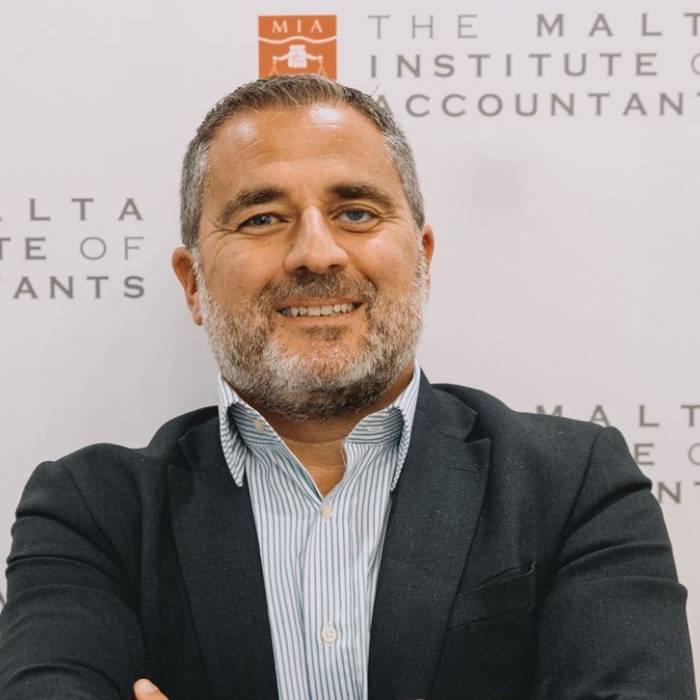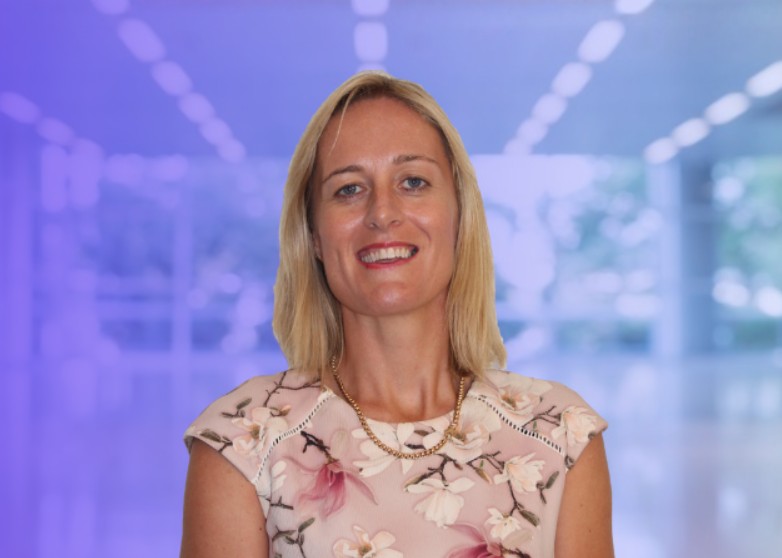“In any country, including Malta, digital skills are required by four main target groups, namely the education sector, the citizens, the labour force, and the ICT professionals,” says eSkills Chief Administrator Carmel Cachia, explaining that everything starts from the education sector, even if education starts from home.
“Education must provide citizens with the right digital skills they need to thrive in their life,” he notes, pointing out the challenges faced by the education sector. These include the development of digitally-skilled students who have the right critical thinking and can use technology effectively, the right ICT infrastructure in schools and training centres, modern teaching content and pedagogies, the upskilling of teachers and trainers, and finally, collaboration with industry.
The Chief Administrator argues that citizens need digital skills to have a good quality of life and employment, making it essential for a person to have basic digital skills. “According to the EU DigComp standard, these skills include the foundations of digital concepts, digital devices, internet access, searching, filtering, interpreting, communication and collaboration using technology, digital content creation, safety, basic technical problem solving and learning.” He continues that while one may think of basic skills as low-level, there is often more to learn.

“Only 56 per cent of the population of Malta and the EU have the required basic digital skills. Citizens also need to have basic software skills to know features such as word processing, advanced spreadsheet functions, creating a presentation or document integrating text, pictures and tables or charts,” he maintains.
Meanwhile, concerning the labour force, Carmel notes that across levels, employees need to have both basic, advanced and software skills to be valuable and enhance their employers’ prosperity, efficiency and competitiveness. “A cross-section of employees should also have specialised digital skills, including business analytics, e-commerce, and knowledge of the emerging digital technologies. Gone are the days when a bit of word processing would do. Business leaders must have a thorough knowledge of Industry 4.0 technology,” he adds.
Launched in 2014, the eSkills Malta Foundation is a national coalition of various representatives from Government, industry and education. The Founding members can contribute to the increase in digital skills and the development of the IT profession. Since its inception, Carmel notes, digital skills on the island have taken “a big leap” in the use and intensity of technology by the previously mentioned target groups.
To mention just a few, these include Communication Tools, Artificial Intelligence (AI) and machine learning, Big Data, Blockchain and distributed ledger technology, Internet of Things (IoT), cybersecurity, networking and communications,” Carmel says, highlighting the fact that AI-powered cybersecurity and e-commerce are used intensely, while 5G adoption is growing.
He continues, “the growth of 5G means that data which previously took minutes to send will now take milliseconds, resulting in a significant increase in the use of IoT, and for sure,” AI will be used in all sectors of manufacturing, health, entertainment, finance and technology. Metaverse will revolutionise human connectivity, which will springboard the use of virtual and augmented reality. Blockchain will significantly impact digital payments, storage of personal records and their interchange, while clean technology will take centre stage where reducing technology’s carbon footprint is vital”.
“All of this has changed and will continue to change the basic and advanced digital skills needed,” the Chief Administrator affirms.
Since its inception, eSkills Malta Foundation has promoted and preached the importance of upskilling citizens, the labour force, business leaders, teachers, students, and the ICT education and profession, as well as forging many collaborations with stakeholders.
“Malta was one of the first countries to launch a specific National eSkills Strategy in 2019. The strategy has helped the Foundation with a coordinated approach to improve digital skills in Malta. The Foundation also issued many intelligence reports and organised many initiatives, including courses, events, and ICT careers advice to Guidance Teachers. Even if we are not alone in this, I am not shy to say that we have contributed and influenced several policies and contributed to business and education transformation,” Carmel continues, pointing out that the latter was crucial during the COVID-19 pandemic.
“Going forward will not be very different, except now we must find better ways to reach higher targets on digital skilling the target groups. We are working on the next National eSkills Strategy, and currently, many discussions are taking place with the actors and stakeholders. Contributing and focusing on the European Commission’s Digital Decade and the Digital Education Plan are future major goals. Together with the collaboration of partners and stakeholders, we will be one of the leading digital countries in Europe,” the Chief Administrator says.
Expanding on the European Digital Decade and the Digital Education and Action Plan, Carmel explains that the European Commission launched the two initiatives in 2020/21. “The path to the Digital Decade includes the reaching of digital targets along with four cardinal points that are measured at EU and national level with key performance indicators. The Digital Economy and Society Index (DESI) will be used for governance and monitoring and seeking a cooperation mechanism. The goals also include implementing digital principles, safety and sovereignty, and the set-up of multi-country projects,” he explains.

The European targets set by the Commission to be reached by 2030 are of high value to any country. The Commission is targeting the increase of basic digital skills to 80 per cent, the increase of IT specialists by 20 million with higher gender convergence, the 100 per cent implementation of main public services, medical records, and citizen digital IDs, the increase in the use of Cloud, AI or Big Data to 75 per cent, the doubling of production in cutting-edge semiconductors, and gigabit for everyone with 5G everywhere.
Meanwhile, he continues, the Digital Education and Action Plan work in tandem with the Digital Decade. “The plan seeks to develop a high-performing digital education and enhance digital skills and competencies for digital transformation. Both of these will be crucial for developing digital education and skills for all the member states of the European Union.”
One of the important mandates of the eSkills Malta Foundation is the further development of ICT professionals in Malta. According to the Chief Administrator, ICT Professionalism should be the fulcrum for ICT professionals and practitioners.
“The development and intensity of the use of digital technology have made a critical subject,” he notes, referencing the fact that the extent of information technology embedded in our daily life is growing, and if we fail to mature the ICT profession, the likely increase of skills will not be enough.
“The European Commission launched the IT Professionalism framework in 2016, which is being further developed as we speak. The framework includes using an e-Competence Framework (a European standard since 2016), implementing an IT body of knowledge that an ICT practitioner should have, the continuous education and training taken by the professionals, and the following of European Ethical guidelines. It is about time that a level of national recognition for the ICT profession is thought of, and this includes the setting up of a recognised ICT Professional Society,” the CEO explains.
Viewing the local context, Carmel affirms that “Malta is no different to any other country in this regard, apart from one caveat: the fact that the island does not have a local ICT professional body. “This is an important element for ICT professionalism,” he maintains, adding that “we have to acknowledge that as a leading country for the digital economy in Europe, we should be looking at this.”
Referencing the fact that the number of ICT specialists in the EU has grown by 40 per cent since 2011, with growth in Malta forecasted to reach 21.9 per cent by 2030, Carmel maintains that in the coming years, he envisages the forming of a local, national Professional Society, along with some form of recognition.
“According to the various studies we carried out, most ICT professionals agree to this, but for this to happen, we need to have everybody on board. What is certain is that ICT professionalism in Malta will surely become more important, not just to the professionals but all.”
Photos by Inigo Taylor
‘The goal is to position Malta as a key operational hub’: New AKJ FMG CEO
Speaking to MaltaCEOs.mt, Paul Magro outlines the company's strategic vision.
Building better businesses: Why we set out to become Malta’s first Certified B Corporation™
Steves&Co.'s long-held purpose-driven approach now has a global, measurable standard behind it.
‘Technology should enhance, not replace, human expertise’ – MIA President Jonathan Dingli
The Malta Institute of Accountants is urging members to lead business transformation amid fast-changing technology.
Shireburn Software names Adrienne McCarthy as CEO, succeeding Yasmin de Giorgio
The new CEO holds qualifications in computer programming, HR and organisational psychology.









